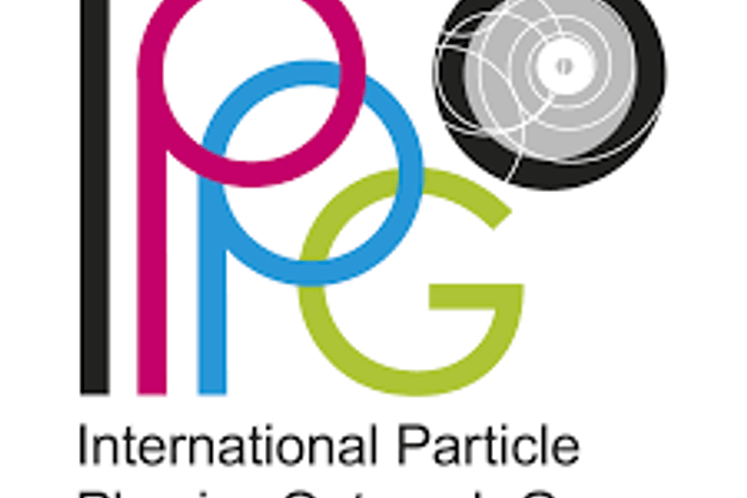- Government of Montenegro
Ministry of Education, Science and Innovation Montenegro officially becomes part of Internationa...
Please note: The page below represents the archived content relating to the previous Government of Montenegro. Some of the information might be inaccurate or outdated.
Archive
Montenegro officially becomes part of International Particle Physics Outreach Group (IPPOG)

Published on: Oct 22, 2019 • 9:25 PM Author: Ministry of Science
The Ministry of Science, headed by Minister of Science Dr. Sanja Damjanović, expressed its interest in joining the International Particle Physics Outreach Group (IPPOG) previously this year. Under the auspices of this Group, the International Masterclass in Particle Physics is being organised at the University of Montenegro for the third consecutive year. On this occasion, Minister Damjanović signed a Memorandum of Understanding in CERN (Geneva), establishing a Cooperation Programme with the IPPOG.
As of today, IPPOG has 28 members – signatory organisations (countries, laboratories, experiments) from Australia, Austria, Belgium, Brazil, Czech Republic, Denmark, Finland, France, Germany, Greece, Ireland, Italy, the Netherlands, Norway, Polish, Portugal, Romania, Slovakia, Slovenia, Sweden, Switzerland, the United States of America and Montenegro; CERN, ALICE, ATLAS, Belle II, LHCb.
The mission of these members is to maximise educational and promotional activities in the field of particle physics, as well as to encourage younger generations to opt for careers in science, technology, engineering and mathematics. The educational and scientific programmes implemented within the Group are intended for primary and secondary school students, teachers, journalists and communicators, key actors and policy makers, as well as the general public. The programmes include activities that spread practical scientific knowledge and skills in the field of presenter expertise to the curious minds of people in places such as museums, science festivals, and school environments.
In 2016, IPPOG became an official scientific collaboration, modelled on other scientific collaborations within CERN and other organisations, by signing of the Memorandum of Understanding between the 10 original Member States. In the meantime, the total number of signatories has increased to 23 countries, 4 experiments, and one laboratory, CERN.
Membership in international organisations and renowned scientific institutions is of particular importance because, in addition to having a positive impact on the economy, it significantly contributes to a downward trend in terms of scientific talent brain drain. The Ministry of Science has appointed Ms. Đurđina Bulatović, Head of the Cabinet of the Ministry of Science, as its representative in the Committee for the Cooperation Programme with the IPPOG.
As of today, IPPOG has 28 members – signatory organisations (countries, laboratories, experiments) from Australia, Austria, Belgium, Brazil, Czech Republic, Denmark, Finland, France, Germany, Greece, Ireland, Italy, the Netherlands, Norway, Polish, Portugal, Romania, Slovakia, Slovenia, Sweden, Switzerland, the United States of America and Montenegro; CERN, ALICE, ATLAS, Belle II, LHCb.
The mission of these members is to maximise educational and promotional activities in the field of particle physics, as well as to encourage younger generations to opt for careers in science, technology, engineering and mathematics. The educational and scientific programmes implemented within the Group are intended for primary and secondary school students, teachers, journalists and communicators, key actors and policy makers, as well as the general public. The programmes include activities that spread practical scientific knowledge and skills in the field of presenter expertise to the curious minds of people in places such as museums, science festivals, and school environments.
In 2016, IPPOG became an official scientific collaboration, modelled on other scientific collaborations within CERN and other organisations, by signing of the Memorandum of Understanding between the 10 original Member States. In the meantime, the total number of signatories has increased to 23 countries, 4 experiments, and one laboratory, CERN.
Membership in international organisations and renowned scientific institutions is of particular importance because, in addition to having a positive impact on the economy, it significantly contributes to a downward trend in terms of scientific talent brain drain. The Ministry of Science has appointed Ms. Đurđina Bulatović, Head of the Cabinet of the Ministry of Science, as its representative in the Committee for the Cooperation Programme with the IPPOG.
Related articles:
Request for prequalification Jan 17, 2025
Is this page useful?
